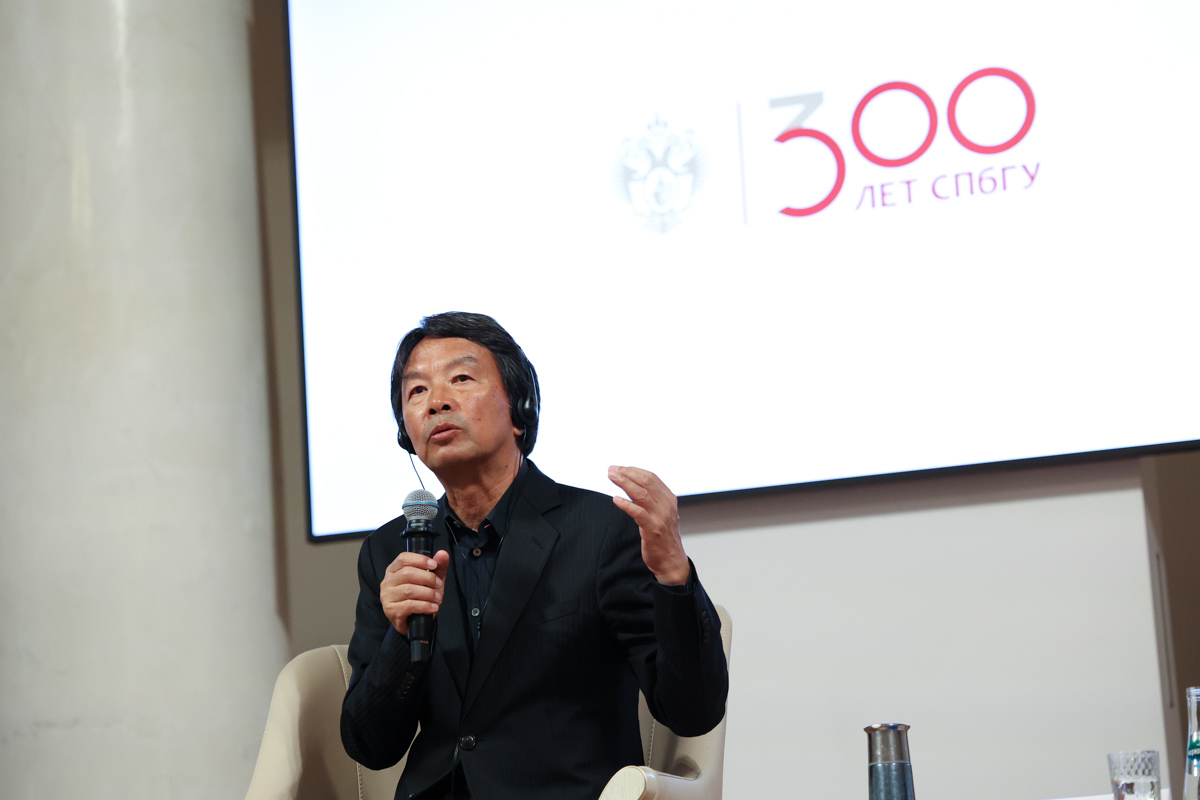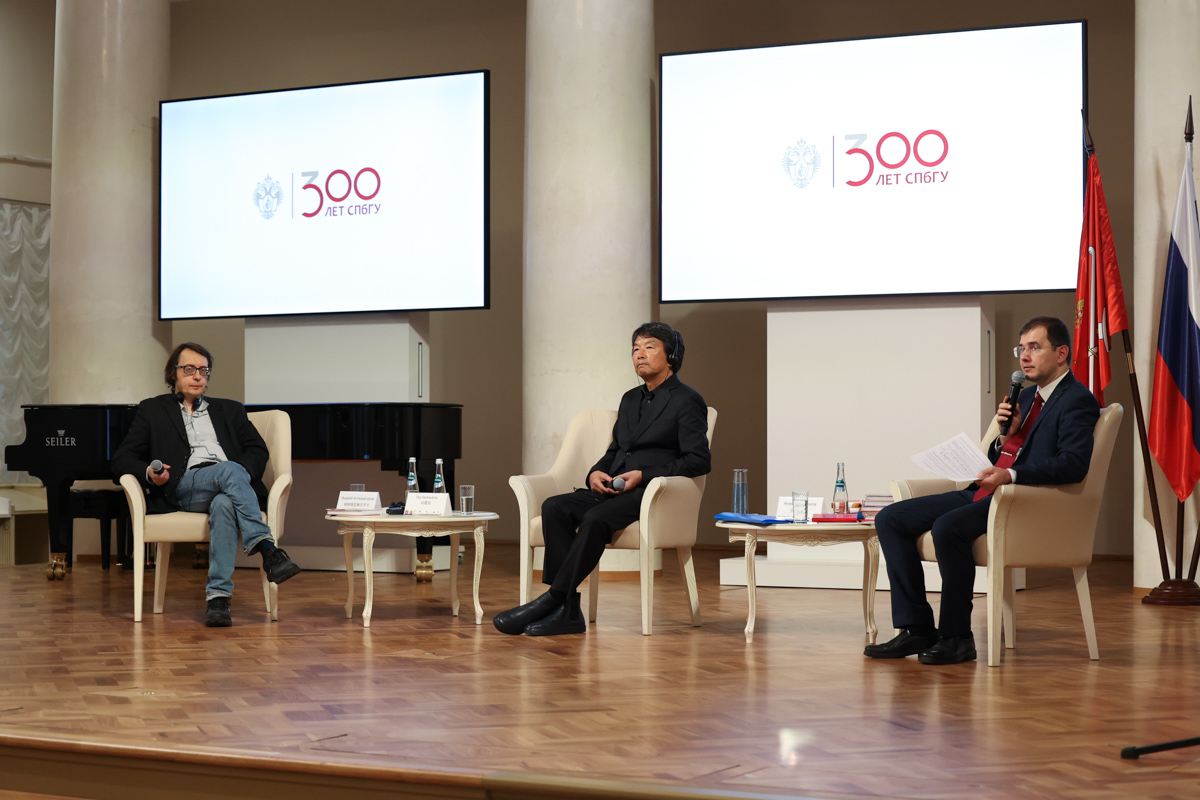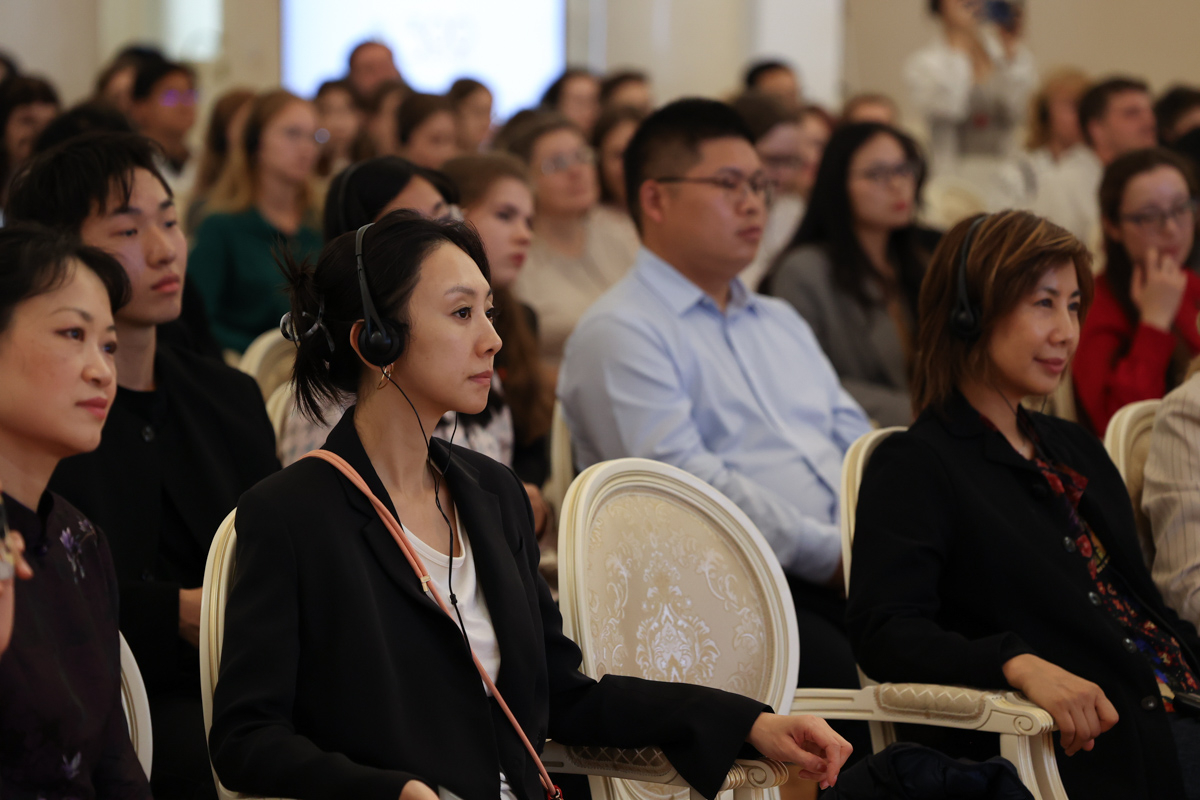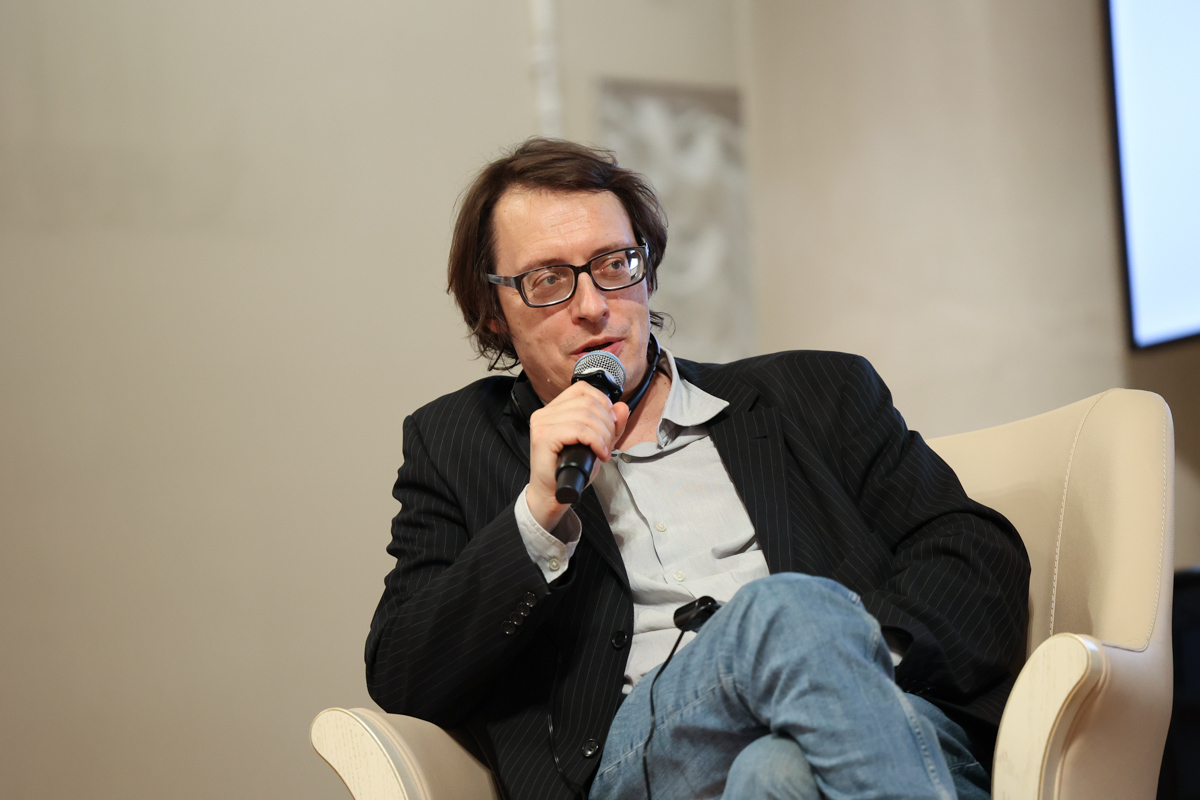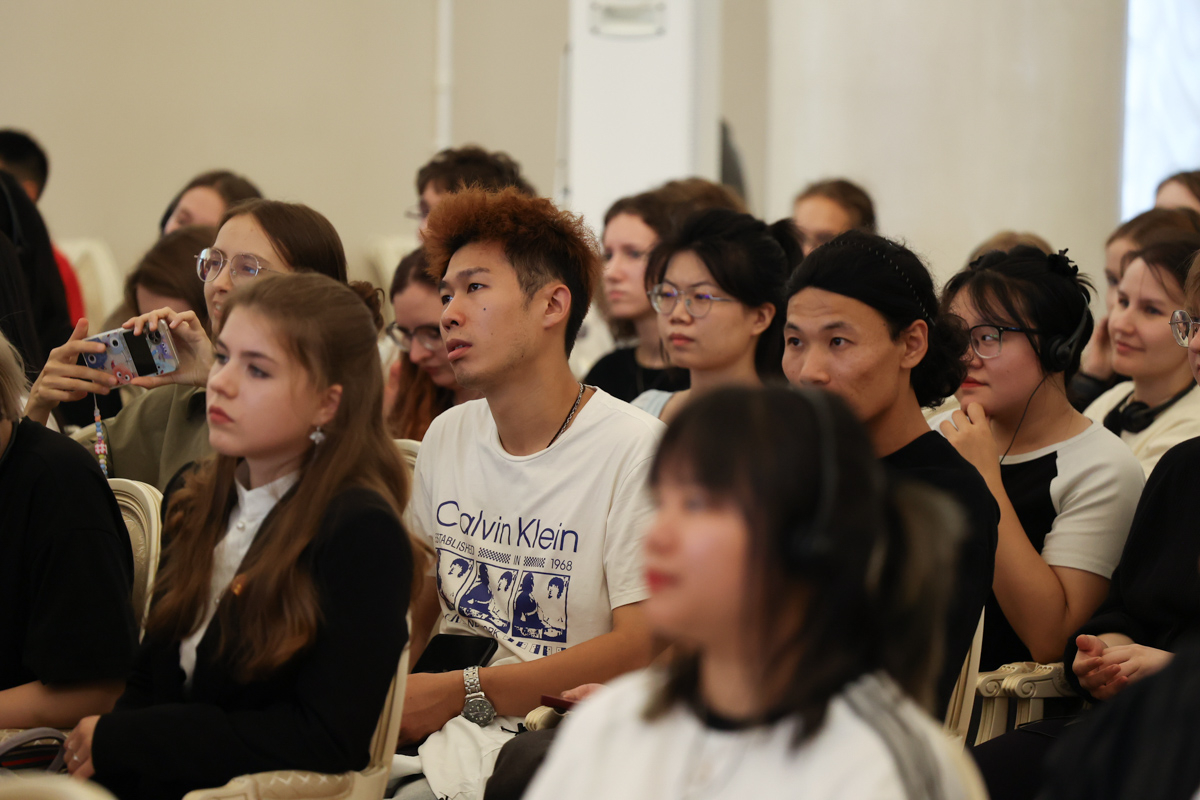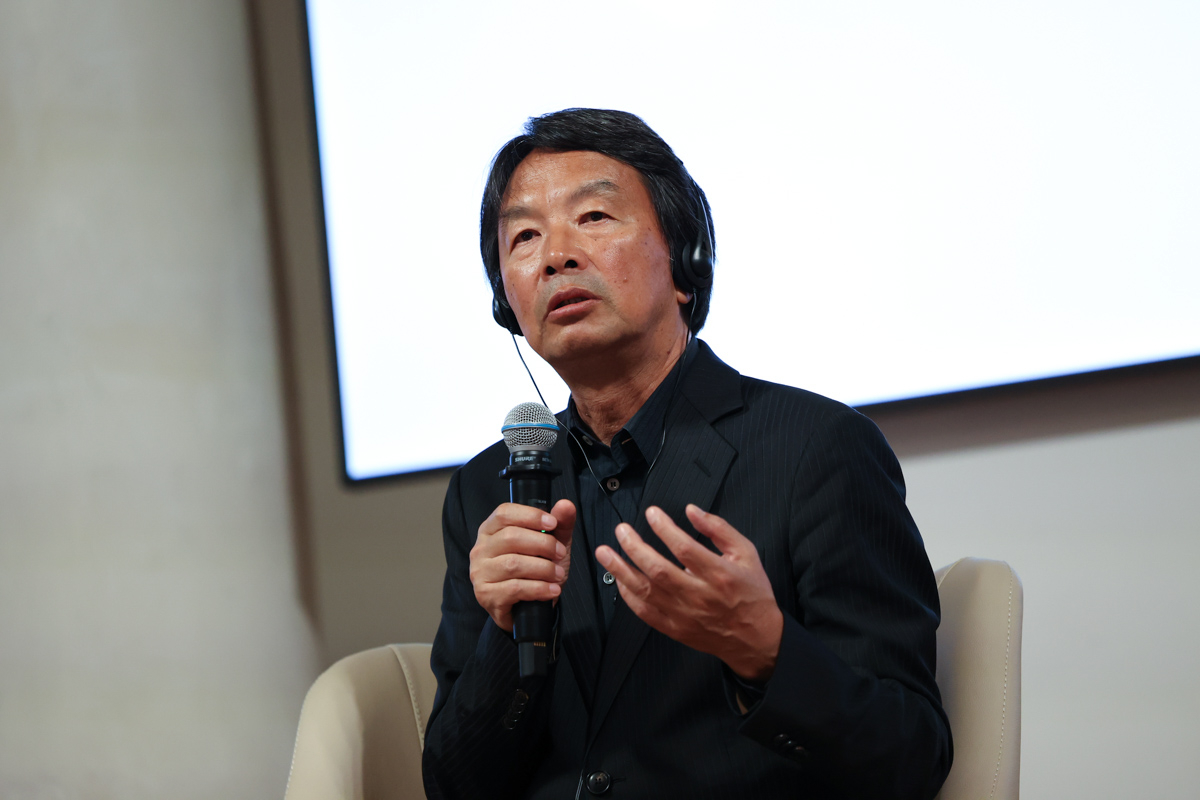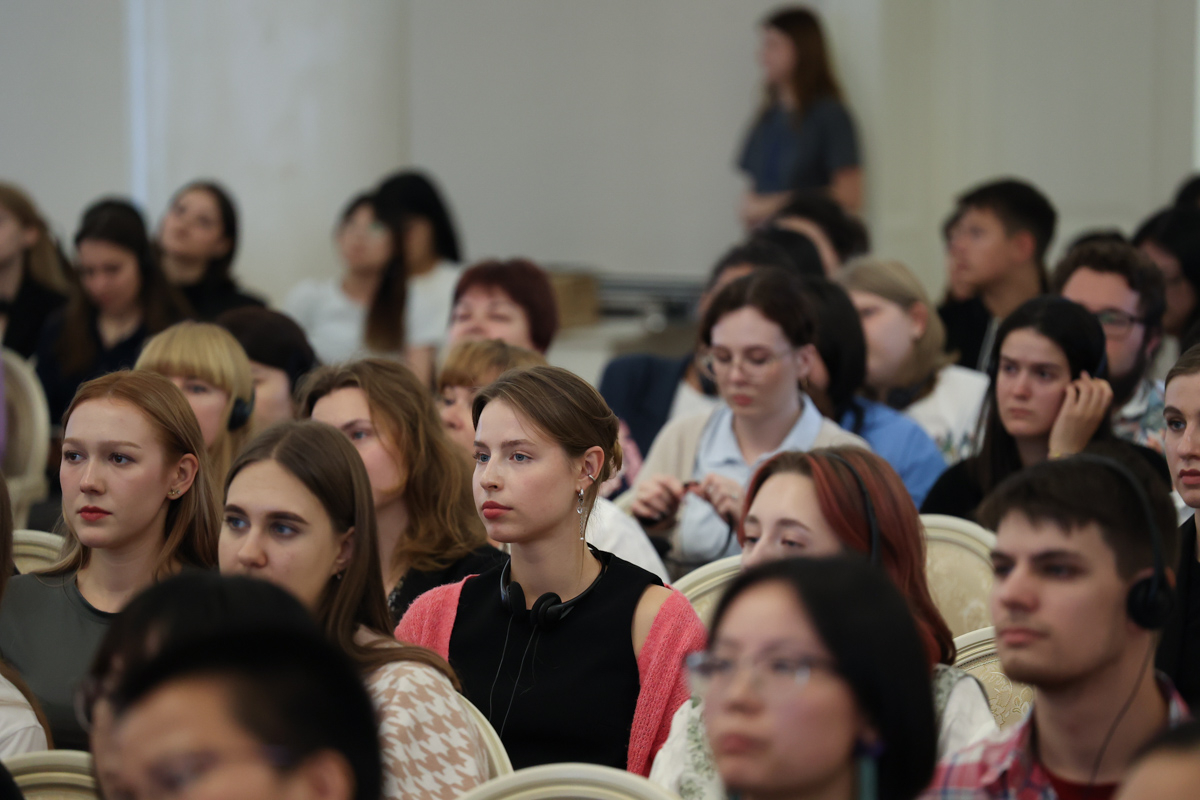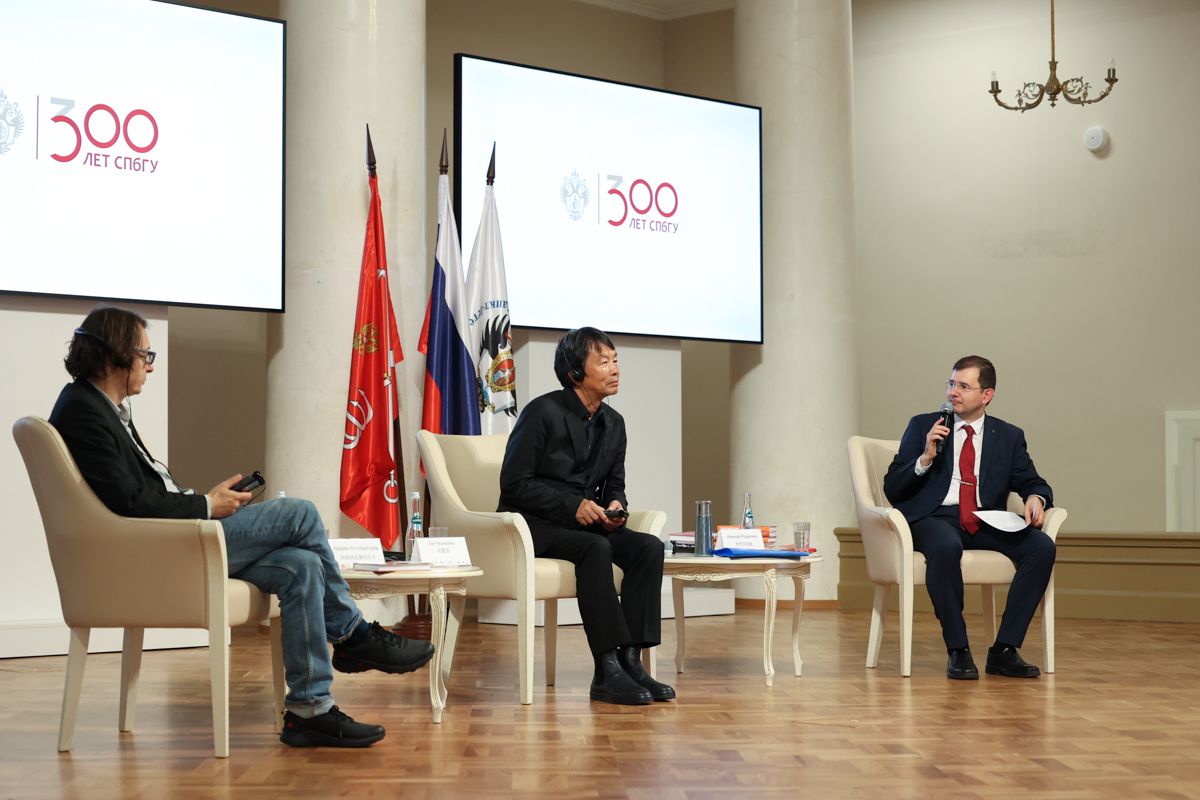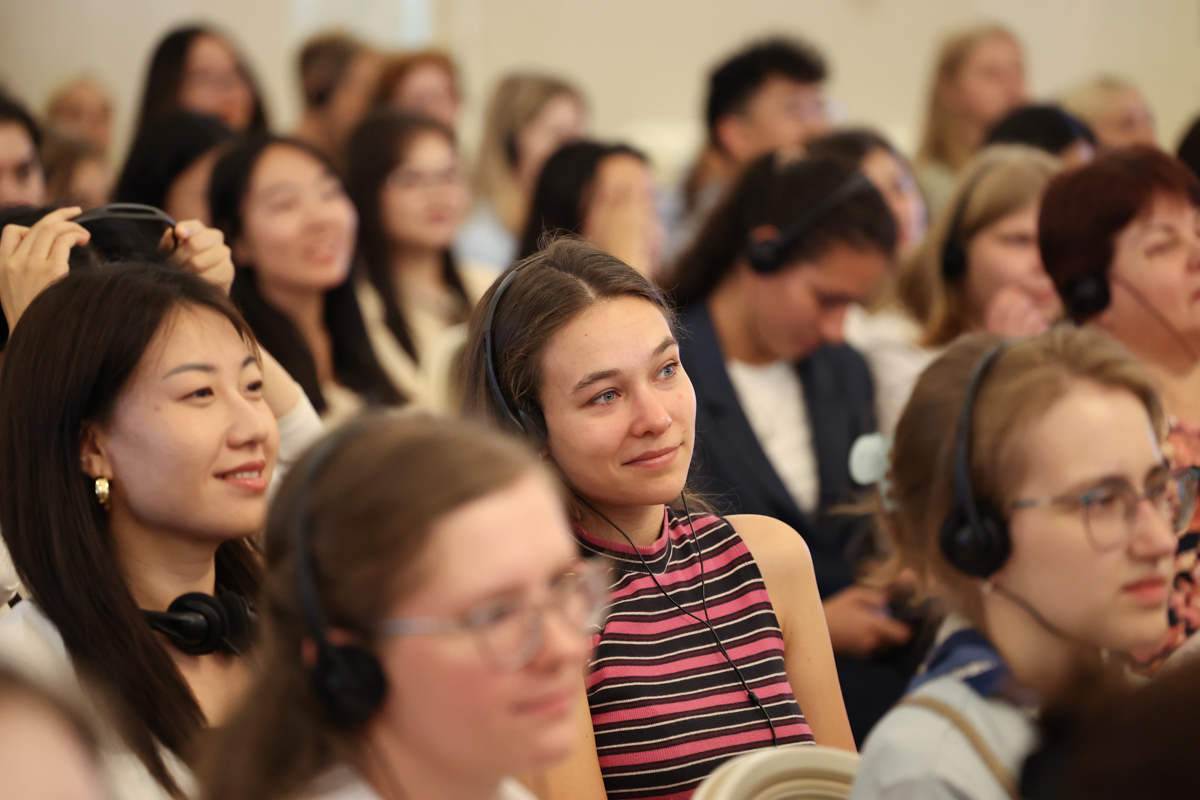"Without understanding another culture, you cannot fully understand your own": Chinese writer Liu Zhenyun visits St Petersburg University
At St Petersburg State University, as part of the III Youth Forum "Culture Code — 2024", Chinese writer and Honorary Doctor of St Petersburg University Liu Zhenyun, together with the Dean of the Faculty of Liberal Arts and Sciences at St Petersburg University, Professor Andrey Astvatsaturov, and the First Deputy Dean of the Faculty of Oriental Studies at St Petersburg University, Professor Alexey Rodionov, discussed Russian readers perception of Chinese literature.
The discussion was opened by Professor Alexey Rodionov, who spoke about the growing popularity of Chinese literature in Russia. "In 2021, Chinese literature first entered the top ten most translated into Russian, ranking ninth. In 2022, it moved up to eighth, last year it was sixth, and by the end of this year, translators expect Chinese prose to secure a solid fifth place. The best-selling book in Russia last year was Chinese —"Heaven Official’s Blessing" by Mo Xiang Tong Xiu. This further proves that our interest in all things Chinese, including literature, is growing rapidly", explained Professor Rodionov.
Prior to the discussion, a ceremony was held in the Peter the Great Hall of the Twelve Collegia Building to confer on Liu Zhenyun the title of Honorary Doctor of St Petersburg University.
Chinese writer and Honorary Doctor of St Petersburg University Liu Zhenyun, in turn, emphasized that China is actively learning about the world, including Russia. "In general, Chinese people are well acquainted with Russian literature", noted Mr. Liu. "I hope that Russian readers are also well acquainted with names like Li Bai and Du Fu".
Professor Alexey Rodionov added that currently, translations of Russian writers in China are published 20 times more than Chinese works in Russia. Only the novel by Soviet writer Nikolai Ostrovsky, "How the Steel Was Tempered", has been translated into Chinese over 80 times.
The Dean of the Faculty of Liberal Arts and Sciences at St Petersburg University, Professor Andrey Astvatsaturov, shared his opinion that in today’s era of "cancel culture", it is important to pay attention to Chinese literary traditions and take inspiration from them.
Chinese culture is ancient; it took several succeeding dynasties to fully form this literary tradition. Compared to this, our literature is very young, and we are still trying to establish our own Russian tradition. If we previously relied on European models, today it is time to turn our attention to Asia.
Professor Andrey Astvatsaturov, the Dean of the Faculty of Liberal Arts and Sciences at St Petersburg University.
Professor Astvatsaturov also drew attention to the key compositional differences between the two literary traditions. "Having read Mr. Liu’s novels, I noticed a calm humour that differs from ours, which is expressive and explosive. It is very subtle and complex. I also like how everyday life is organically combined with myths, legends, and fantasy. We still don’t know how to do this. Our task is to learn from our Chinese colleagues to write good, high-quality narratives reminiscent of the epic tradition".
The meeting also touched on the issue of preserving national culture. Liu Zhenyun believes that while it is important to preserve one’s traditions, one should not limit oneself to them alone.
If a writer is unfamiliar with the culture of other countries, he loses the breadth of his thought and confines himself to the output of a single nation. Such writers are like frogs at the bottom of a well who see only a small piece of the sky above them. Popular writers are those who write about what is common across nations and people.
Liu Zhenyun, Chinese writer and Honorary Doctor of St Petersburg University
Professor Rodionov noted the importance of the phenomenon of transmediality, the ability of a work to exist in different forms, adding that the day before Moscow’s Theatre of Nations premiered a play by young Chinese director Ding Yiteng, "I Did Not Kill My Husband", based on Liu Zhengyun’s novel of the same name. Mr. Liu praised the play. "I liked the creative approach. Generally, adapting a novel into a play is no easy task. A writer can write as long a text as he wants, but in a play, everything must be compact", commented Liu Zhenyun.
In 2018, the presentation of the "Almanac of Contemporary Russian Prose„—a unique project initiated by St Petersburg University—took place in Harbin. The event was attended by the Governor of Heilongjiang Province Lu Hao, the Rector of St Petersburg University Nikolay Kropachev, and the editor-in-chief of the almanac, Associate Professor of St Petersburg State University, writer Andrey Astvatsaturov.
Professor Astvatsaturov spoke about his contribution to the development of Russian-Chinese literary ties, mentioning his trip to Harbin to present the "Almanac" to Chinese readers. "In China, despite the popularity of Russian literature, readers mostly read our classics. To continue the dialogue between the two countries, it is necessary to get acquainted with contemporary writers. Thus, on the initiative of the rector of St Petersburg University, Nikolay Kropachev, the idea of an almanac of their short prose was born", explained Astvatsaturov. "Short prose is a great form to show off the author’s skill, so I chose the best representatives of the short story genre for the collection: Eugene Vodolazkin, Mikhail Elizarov, Alexander Tsypkin, Ildar Abuszyarov, and other writers".


